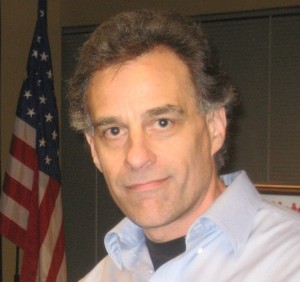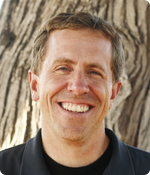A WCTA Debate Summary by Michelle Ranken.
Seattle, WA – March 12, 2014 –The controversy over coal terminals in Washington State proved to be a heated debate topic at the Perkins Coie-sponsored breakfast event which overlooked Seattle’s beautiful waterfront downtown. Moderator Hal Calbom of Sustainable Media Group guided the discussion between Mike Elliott, a Washington State Legislative Spokesman for the Brotherhood of Locomotive Engineers & Trainmen and Jan Hasselman, a staff attorney with Earthjustice’s Seattle office.

The debate began with Mike Elliott, a proponent of export expansion in Washington State. He argued that the proposed state-of-the-art multi-commodity facilities (Gateway and Millennium Projects) for coal exports would be the single largest trade investment opportunity in the region, a $1.5 billion private investment, a potentially huge competitive asset to Washington’s trade infrastructure. Elliott’s emphasis was not so much on the commodity of coal itself, but on the importance of trade and job growth in Washington State, as one quarter of jobs in Washington rely on exports and it is the most trade-dependent state in the nation. For these reasons he argued that it is essential to improve trade infrastructure to remain competitive domestically, as well as on the global stage. Elliott noted that the U.S. is already exporting coal from eleven plus ports (Great Lakes, East Coast, and Gulf States) and there are currently “zero” coal export facilities on the U.S. West Coast. Elliott discussed his opinion of the potentially negative effects of the State Environmental Policy Act (SEPA), which would pursue an unprecedented process involving the environmental review of any product made or transported through Washington. SEPA will involve overstepping boundaries, Elliott contended. In a rhetorical question that summed up his thoughts nicely, Elliott wondered, “Are there other job opportunities [in Washington State] for blue-collar people, other than tech industries?”

Jan Hasselman, on the other side of the debate, opened up his talk with a discussion of the Environmental Impact Statement and the importance of involving the public in choices regarding coal exports as well as determining the scope of the impacts. He addressed the need for identifying the potential for negative impacts in the rail, marine, and climate sectors. Hasselman acknowledged the importance of job growth, as Mike Elliott highlighted, but also argued that people should be aware of the impacts that coal could have on their products as well as how coal may impact human health. Also along the lines of economic importance and job growth, he contended that property values could be hurt, and businesses could potentially be scared away in the future if Washington becomes a “coal state.” In his final remarks, Hasselman argued that it is crucial that we switch from a fossil fuel-based economy to something else as quickly as possible, as fossil fuels can only be dealt with on a very costly and lasting scale. He also added a hypothetical rebuttal to his argument: “If we don’t do this, somebody else will,” quoting Breaking Bad character Walter White on selling methamphetamine, to which he replied, “Do we as Washingtonians have to be the facilitators of this?” Find Jan’s slides here.
The two sides of the debate opened up the floor to thirty minutes of questions from the audience. One of the more intriguing questions asked was “How much of the debate is dependent on assumptions that may not be valid anymore? The questioner refered to the fact that China is beginning to move away from coal due to its issues with pollution and economics. To this Mike Elliott replied, “If coal continues then great, if not then we can find something else,” emphasizing his initial notion that the physical coal commodity is not the pressing issue here, but rather jobs and economic growth for the State of Washington. Jan Hasselman responded simply that “We need to think about a long-term picture before investing billions of dollars.”
Both Mike Elliott and Jan Hasselman brought up valid and compelling points in their arguments regarding a very complex issue. While they plainly disagreed with each other, they made there points in a respectful manner that the audience appreciated. Tom Ranken, President and CEO of Washington Clean Technology Alliance, closed the debate with the remark that “the nation tends to be very divided on too many topics today. It is these kinds of thoughtful discussions that help to bring people together and begin the search for better solutions.”
P.S. Mike also noted that many claims about coal dust, rail traffic, and the impacts of the facilities themselves, are inaccurate in his experience. Mike noted the trains are sprayed with sealant, that the facilities themselves use enclosed conveyor belts, and that the trains are unloaded inside a negative pressure shed that traps what little dust is produced during unloading. As follow-up, Mike pointed to recent air monitoring by the Northwest Clean Air Agency that found no negative impact on air quality near train tracks over a 20 month monitoring period.